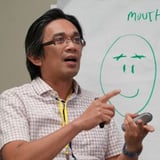Summary
In Australia, the public sector is marred by a legacy of efficiency-driven systems that put some of Australia’s most vulnerable at risk. The outcomes of recent Royal Commissions triggered by these failures suggest that the public sector is moving into a new era. Project proposals now require ethnographic research and meaningful collaboration with people who have lived experience of systems failure. We will share our trajectory as a ten-year-old design organization advocating for and driving these practices, recent project case studies about mental health reform and co-production, and a series of provocations about the path we see ahead.
Key Insights
-
•
Australia’s public sector was largely undesigned and paternalistic before 2012, treating design mainly as outsourced web development.
-
•
Studio Thick, launched by Damon Young and Adam Morris in 2012, introduced ethical design focusing on people, planet, and organizations, blending service design with product development.
-
•
Royal commissions into system failures, like family violence and mental health, exposed the inadequacies of traditional approaches and spurred design adoption in public policy.
-
•
Australia’s digital transformation efforts started around 2015 but had poor user experience and trust due to delayed integration of UX and service design.
-
•
By 2018-2019, Australian civic design practices shifted from bifurcated service/product roles to multidisciplinary, impact-focused autonomous teams.
-
•
The COVID-19 pandemic accelerated digital service delivery and innovation, intensifying the public sector’s need for mature design capabilities.
-
•
Mental health reform in Victoria involves a Royal Commission with 65 recommendations, roughly one-third emphasizing co-design with people having lived experience.
-
•
Building organizational co-design capability requires guidelines around partnership, recruitment, safety milestones, and shifting bureaucratic power dynamics.
-
•
Blended teams combining designers and people with lived experience create challenges in mentoring, power sharing, and shifting roles beyond classic design skills.
-
•
Consultants are evolving into facilitators of systemic change, responsible for holding complex, multi-stakeholder projects together while fostering capacity building.
Notable Quotes
"Sovereignty was never ceded."
"Design for the government was something you do to outsource web development, not for serious problems."
"Studio Thick’s name refers to thick value — qualitative research with more depth than simple messages."
"The system had catastrophically failed to live up to expert expectations and was underprepared for future challenges."
"Nearly a third of the 65 mental health commission recommendations call for co-design, which is pretty exciting."
"Designers need to switch hats when working with people who aren’t trained designers — mentoring is essential."
"Power sharing requires behavior change, reflection, and descending about expertise."
"Producers create a care plan for every project — they’re far more than project managers."
"Co-planning means building trust and relationships before planning the project itself as a blended team."
"How do we become facilitators who can encourage and model true power sharing? That’s the big question."
Or choose a question:














More Videos

"Sometimes it’s not about what you want to do, it’s about when."
Laurent ChristophScale the impact of DesignOps in 3D: Diligence, Decision, Discipline
September 17, 2025

"Sometimes we have ideas of average users, but there are many different abilities to account for that are large parts of the population."
Kelly DernAI as a Design Partner: How to Get the Most Out of AI Tools to Scale Your Process
October 3, 2023

"Peter Conner, our lawyer, redesigned compliance training so people took fewer courses but more relevant ones."
Julie BaherCulture Change—My Journey
May 14, 2015

"With LLMs, precision is not possible; no one really knows why it decided what to say."
Aras BilgenWho does the math: A designer’s journey in building an AI-based tutoring app
June 10, 2025

"Sponsor sessions are not sales pitches, they’re people like you, really knowledgeable, sharing great things."
Louis RosenfeldWelcome / Housekeeping
June 6, 2023

"Model companies are students in a classroom wanting good points—they’re happy to run external expert evals to improve."
Peter Van DijckHands-on AI #2: Understanding evals: LLM as a Judge
October 15, 2025

"Errors in form fields should alert users immediately but also allow them to explore details at their own pace to avoid cognitive overload."
Sam ProulxDesigning For Screen Readers: Understanding the Mental Models and Techniques of Real Users
December 10, 2021

"We cannot change people, but we can change systems, processes, and environments."
Samuel ProulxInvisible barriers: Why accessible service design can’t be an afterthought
December 3, 2024

"You have to make everything easily accessible; friction drives customers away."
Erin WeigelReal-world lessons to improve your conversion rates
June 26, 2024
















